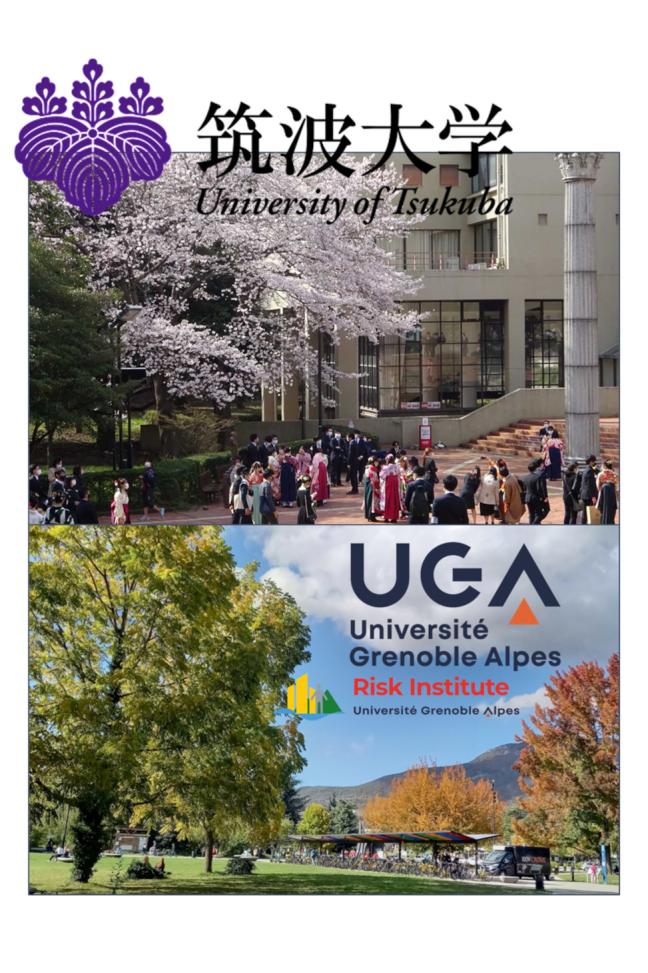- Share
- Share on Facebook
- Share on X
- Share on LinkedIn
Seminar / Event in English
On June 10, 2024
Saint-Martin-d'Hères - Domaine universitaire
The Risk Institute@Université Grenoble Alpes is organizing a series of webinars on risk management in 2023/2024 with the University of Tsukuba (Japan) to open a research partnership on the topic. This fourth webinar will take place online on Monday June 10th, 2024 from 11.15am to 12.15am in France (6:15pm - 7:15pm in Japan).
Registration link at bottom of page
Webinar #4
Thematic: Territories & Risks (2)
Abstract
The estimation of seismic damages at an urban scale is challenging for several reasons. First, commonly used methodologies for seismic damage estimation rarely take into account the local site effects at the building-level. Second, in countries with limited census data and incomplete building datasets, the lack of comprehensive data on the building stock and their taxonomy further increases the complexity of assessing possible earthquake consequences at an urban scale. We will present how we tackle these challenges in the city of Beirut in Lebanon, one of the most exposed Middle-East countries to seismic risk.
Prof. Cecile Cornou is Director of Research at the Institut de Recherche pour le Développement (IRD). She works at Grenoble Alpes University's ISTerre laboratory, in the Geophysics of Seismic and Gravity Hazards research team. She is scientific co-leader of the RISK Institute project at Grenoble Alpes University and a member of the Telluric Crisis and risks cluster.
Her work focuses on :
- Seismic hazard, with a particular focus on site effects
- Seismic noise for site effects and site characterization
- Seismic risk modeling in urban environments
Advancements in Seismic Hazard Assessment and Strong Motion Prediction Methods
Abstract
In order to contribute to the creation of National Seismic Hazard Maps for Japan, we have been conducting research on probabilistic seismic hazard analysis and strong ground motion prediction methodologies to create seismic hazard maps for specific seismic faults. Additionally, we have been working on modeling subsurface velocity structures and developing simulation methods based on physical models. We continue to refine these methods based on lessons learned from the Great East Japan Earthquake and the Kumamoto Earthquake. We will present the progress of seismic hazard assessment and strong ground motion prediction methods over the past 20 years and discuss future challenges.
Pr. FUJIWARA Hiroyuki is Director of the Multi-hazard Risk Assessment Research Division, National Research Institute for Earth Science and Disaster Resilience - Ph.D. from Kyoto University
1989 - Researcher, NIED
2001 - Head of strong motion observation network laboratory, NIED
2006 - Project director, Disaster prevention system research center, NIED
2011 - Director, Division of Integrated Research on Disaster Prevention, NIED
2019 - Director, Multi-hazard Risk Assessment Research Division, NIED
Date
11h15 - 12h15 (France - GMT+1)
18h15 - 19h15 (Japon)
Free registration
You will receive the zoom connection links by email on Friday 7 June 2024.
Registration link
Localisation
Saint-Martin-d'Hères - Domaine universitaire
Zoom
Online webinar

- Share
- Share on Facebook
- Share on X
- Share on LinkedIn